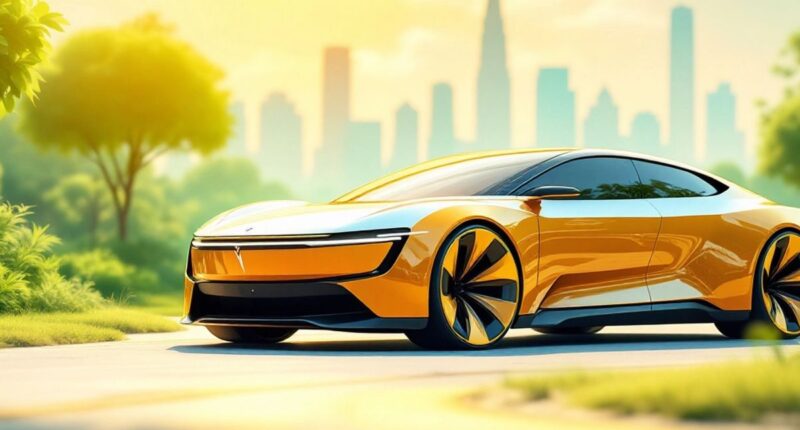The Ministry of Investment, Trade and Industry (MITI) has announced its commitment to assist Perusahaan Otomobil Kedua Sdn Bhd (Perodua) in producing Malaysia's first electric vehicle (EV) priced under RM100,000. Minister Tengku Datuk Seri Zafrul Abdul Aziz expressed optimism that Perodua will achieve this target by the end of 2025, aiming to make EVs more affordable for the Malaysian public.
Key Takeaways
- MITI will support Perodua in producing an affordable EV by 2025.
- Nearly 16,000 battery electric vehicles (BEVs) were registered in Malaysia as of September 2024.
- The government aims for 20% of total industry volume to be EVs by 2030.
- Infrastructure for EV charging is expanding rapidly, with a target of 10,000 public chargers by 2025.
Government's Commitment to Affordable EVs
The initiative by MITI is part of a broader strategy to promote electric vehicles in Malaysia. The government recognizes the importance of making EVs accessible to the average consumer, which is crucial for increasing adoption rates. Tengku Zafrul emphasized that discussions between MITI and Perodua have been ongoing, and there is a strong belief in the feasibility of this project.
Current EV Landscape in Malaysia
As of September 2024, Malaysia has seen a significant increase in the registration of battery electric vehicles. The numbers have surpassed those of the previous year, indicating a growing interest in EVs among consumers. The statistics are as follows:
- 2023 BEV Registrations: Approximately 13,000
- 2024 BEV Registrations (as of September): Nearly 16,000
This positive trend is encouraging for the government's goal of having 20% of total vehicle sales be electric by 2030.
Charging Infrastructure Expansion
To support the growing number of electric vehicles, the government is also focusing on enhancing the charging infrastructure. In just three months, 565 new public charging stations have been added, bringing the total to nearly 3,200. The government has set ambitious targets for the future:
- Target for Public Chargers by 2025: 10,000
- Desired Charger to EV Ratio: 1 charger for every 9 EVs
This expansion is crucial for alleviating range anxiety among potential EV buyers and ensuring that the infrastructure keeps pace with the increasing number of electric vehicles on the road.
Economic Impact of the Automotive Industry
The automotive sector remains a vital component of Malaysia's economy, contributing approximately 4% to the country's GDP annually. With the rapid evolution of the EV market, Malaysia is well-positioned to capture a significant share of the ASEAN EV market, which is projected to reach USD 2.7 billion by 2027. The government's proactive measures in supporting local manufacturers like Perodua are expected to bolster this growth.
In conclusion, the collaboration between MITI and Perodua marks a significant step towards making electric vehicles more affordable and accessible in Malaysia. With the right support and infrastructure in place, the country is on track to become a key player in the ASEAN electric vehicle market.
Sources
- Miti to help Perodua produce Malaysia's first EV priced under RM100,000 – Tengku Zafrul | The Star, The Star.
- Miti to help Perodua produce Malaysia’s first EV under RM100,000 | FMT, Free Malaysia Today.
- MITI bantu Perodua keluarkan EV pertama Malaysia berharga bawah RM100,000 | Astro Awani, astroawani.com.
- MITI bantu Perodua keluarkan EV pertama Malaysia harga bawah RM100,000 – Sinar Harian, Sinar Harian.
- BERNAMA – MITI Akan Bantu Perodua Keluarkan EV Pertama Malaysia Berharga Bawah RM100,000, bernama.

